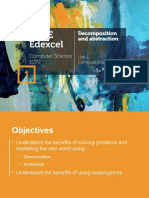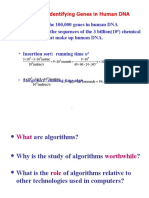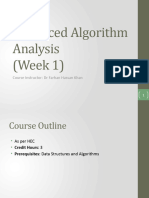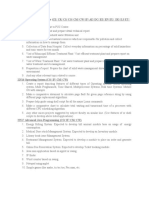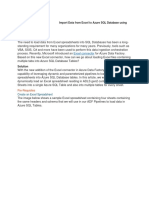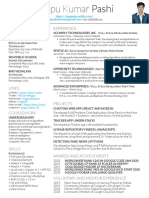0% found this document useful (0 votes)
180 views22 pagesT1 Algorithms, Decomposition and Abstraction
This document covers the fundamentals of algorithms, decomposition, and abstraction in computer science, emphasizing their importance in problem-solving. It defines algorithms as sets of instructions for tasks, decomposition as breaking down problems into smaller parts, and abstraction as focusing on essential components by removing unnecessary details. The content includes examples, strategies for algorithmic thinking, and highlights the advantages of decomposition in programming.
Uploaded by
samakshgupCopyright
© © All Rights Reserved
We take content rights seriously. If you suspect this is your content, claim it here.
Available Formats
Download as PPTX, PDF, TXT or read online on Scribd
0% found this document useful (0 votes)
180 views22 pagesT1 Algorithms, Decomposition and Abstraction
This document covers the fundamentals of algorithms, decomposition, and abstraction in computer science, emphasizing their importance in problem-solving. It defines algorithms as sets of instructions for tasks, decomposition as breaking down problems into smaller parts, and abstraction as focusing on essential components by removing unnecessary details. The content includes examples, strategies for algorithmic thinking, and highlights the advantages of decomposition in programming.
Uploaded by
samakshgupCopyright
© © All Rights Reserved
We take content rights seriously. If you suspect this is your content, claim it here.
Available Formats
Download as PPTX, PDF, TXT or read online on Scribd
/ 22


